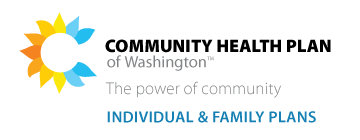What is high blood pressure?
Your heart is the strongest muscle in your body, pushing blood through your vessels by squeezing and relaxing. This process creates a force called blood pressure.
When your blood pressure is high, your heart has to work harder. High blood pressure is also known as hypertension.
When your heart works hard over a long period of time, it can lead to a number of health and heart conditions.
How is blood pressure measured?
Two numbers are used to measure blood pressure:
- The first (systolic) number is the pressure in your blood vessels when your heart beats.
- The second (diastolic) number is the pressure in your vessels when your heart rests between beats.
For example, if the measurement reads 118 systolic and 79 diastolic, your doctor might say “118 over 79” or write “118/79 mm Hg” on your chart.
Blood pressure is usually measured with a small gauge attached to an inflatable cuff. If your blood pressure reading is over 120 systolic mm Hg and/or over 80 diastolic mm Hg, you might be at risk for having or developing hypertension.
If you are concerned that your blood pressure is high, you need to seek medical advice.
Risk factors (things that increase your risk) for high blood pressure
- Risk of hypertension increases as you get older.
- Men are at greater risk than women.
- Family history or genetics affects your risk of high blood pressure.
- High sugar levels in the blood can lead to damaged arteries and cause high blood pressure.
- Lack of exercise. This limits the strength of the heart muscle.
- Sodium (salt). Foods high in salt can restrict blood vessels, creating higher pressure.
- Being overweight causes the heart to work harder and increases blood pressure.
- Stress can contribute to hypertension.
What can you do to manage your blood pressure?
- Follow your doctor’s instructions for taking medications.
- Eat a healthy diet.
- Learn to manage stress.
- Limit alcohol use.
- Maintain a healthy weight.
- Follow a physical activity plan.
- Don’t use tobacco, or quit tobacco use.
Work with your doctor to create a health plan that is right for you. Consider your schedule, lifestyle, culture, and family.
How Community Health Plan of Washington (CHPW) can help
As your health plan, CHPW wants you to feel your best every day. You may want to take advantage of the following resources:
- Health Assessment. A health assessment looks at your whole health through a series of questions about your physical, mental, and emotional health. CHPW can give you a health assessment over the phone.
- CHPW’s Care Management team can help you build healthy daily habits that are shown to help people with high blood pressure feel better. Case Managers are available to provide education, support and coordinate care.



